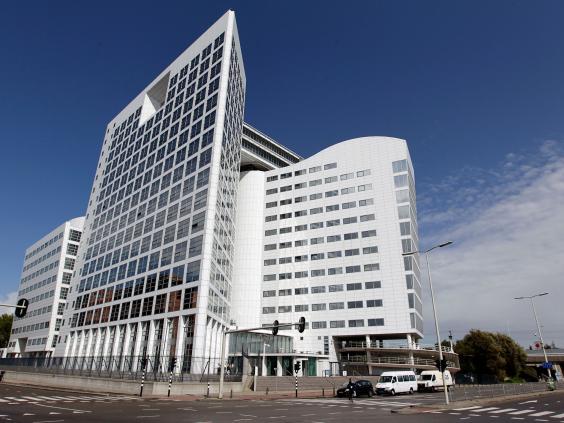 Russia may have been “emboldened” to
withdraw its support for the International Criminal Court (ICC) by the election
of Donald Trump, an analyst
has said.
Russia may have been “emboldened” to
withdraw its support for the International Criminal Court (ICC) by the election
of Donald Trump, an analyst
has said.
Vladimir
Putin signed an order to withdraw his
country’s signaturefrom the court’s founding treaty on Wednesday,
amid an investigation into the Ukraine conflict and calls for Russia to be
prosecuted over its air strikes in Syria.
South
Africa, Gambia and Burundi have also signalled they will pull out of the ICC,
despite warnings from the United Nations.
Dr
Leslie Vinjamuri, director of the Centre on Conflict, Rights and Justice at
SOAS, University of London, said Russia was “taking advantage of several
different events” to make its move.
“The ICC is holding an event now in the Hague,
there have been three African withdrawals and on the heels of that we have the
election of a US President who is not going to be supportive.
As well
as repeatedly praising Mr Putin during his election campaign, Mr Trump is
reportedly considering anti-ICC campaigner John
Bolton for the position of Secretary of State.
The US
is not a party to the ICC, while Russia and several other countries signed its
founding document – the Rome Statute - in 2000 but failed to ratify it.
The
signature will now be withdrawn, formally removing the Kremlin from the body’s
scrutiny.
“The
International Criminal Court has not justified hopes placed upon it and did not
become a truly independent and authoritative judicial body,” a spokesperson for
the Russian foreign ministry said.
Kremlin
spokesman Dmitry Peskov told reporters the decision to withdraw Russia's signature
had been taken “in the national interest”.
Dr
Vinjamuri, who is also an associate fellow at Chatham House, said Russia was
unhappy about a previous ICC investigation into its war with neighbouring
Georgia and angered by a prosecutor’s report two days ago opening a new probe
into Ukraine.
“It’s
not likely to do much to affect the operation of the ICC because Russia has
never been seen as a supporter,” she added.
“It’s a
bit of posturing and if anything it just affirms that Russia’s not really
playing ball when it comes to global support for human rights and cooperation.
Francois
Hollande, the President of France, suggested that Russia should face war crimes
charges over its bombardment of rebel-held eastern Aleppo last month.
“These
are people who today are the victims of war crimes,” he told French television
amid hundreds of reported civilian deaths.
“Those
that commit these acts will have to face up to their responsibility, including
in the ICC.”
It was
the latest call parties in the conflict to be prosecuted by the ICC, after
Russia and China vetoed a UN Security Council resolution to refer the Assad
regime in 2014.
Both
Russian and Syria have denied deliberately killing civilians or breaking
international law in the Syrian civil war, saying they are targeting terrorist
groups.
Wednesday’s
announcement came two days after the ICC’s prosecutor issued a report on
preliminary investigations into actions by Russia and other parties in the
Ukraine conflict.
Two
probes have been launched over alleged crimes committed during fighting between
separatist rebels and government forces in eastern Ukraine and Russia’s
annexation of the Crimean Peninsula.
The
Kremlin has denied persistent allegations of military intervention in the
conflict and providing support to pro-Russian rebels but the ICC’s prosecutor
said the situation in Crimea amounted to an “international armed conflict”
between Russia and Ukraine as defined by the Rome Statute, meaning its
jurisdiction applies.
A
report found the conflict began in February 2014 when Russian troops were
deployed “to gain control over parts of the Ukrainian territory without the
consent of the Ukrainian Government”.

No comments:
Post a Comment